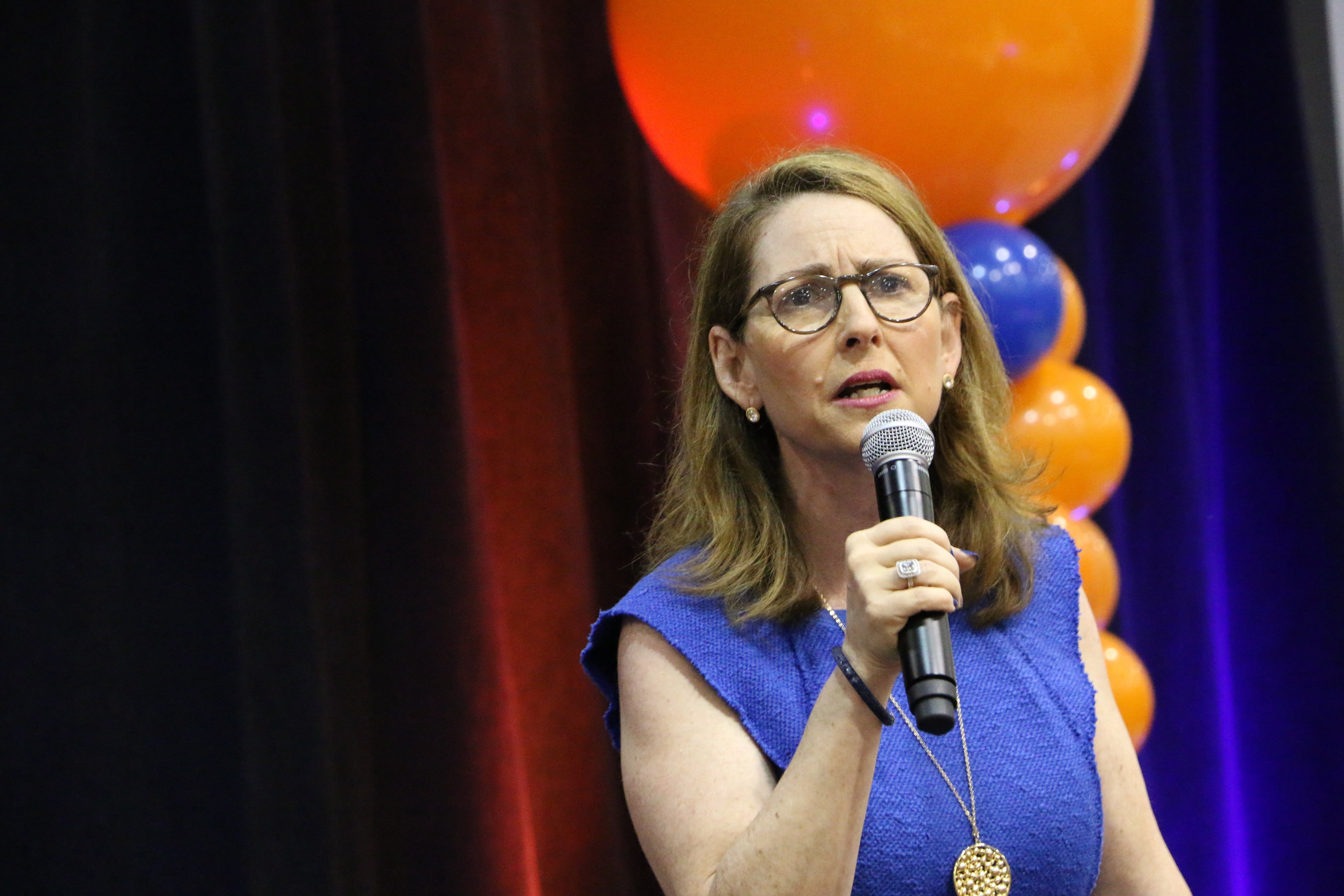Success Academy, the city’s largest charter school network, will extend all-remote learning through at least March of 2021, the network announced Friday.
The decision was made to avoid any disruption to schooling, according to Success CEO Eva Moskowitz, who cited uncertainty about a resurgence of the coronavirus and the possibility of sudden school closures.
Notably, Moskowitz also argued that fully remote learning is the best way to ensure that students receive quality teaching during the pandemic, and avoid some of the pitfalls of having to create two different versions of school at once, remotely and in person. It is a stark departure from the city’s district schools, which have invested heavily in reopening physical school buildings, but have struggled to staff both in-person and virtual classes and have yet to attract most students back to classrooms.
“It is not at all clear that this version of schooling would be better than the quality we can produce with strong remote learning,” Success officials wrote in a letter to families. “While district schools are open and a small number of students can physically be on campus, students are often being taught remotely by teachers who are not in the classroom with them. This is not our vision of great schooling.”
Still, Success has hit some bumps transferring its famously demanding culture to a completely virtual setting, including several hours of live instruction a day, which met resistance from some parents and educators. The network agreed to reduce screen time, particularly for its youngest students.
As Moskowitz pledges to keep her network’s roughly 20,000 students completely remote until the spring, Mayor Bill de Blasio and schools Chancellor Richard Carranza are now trying to encourage more children back into buildings. They’ve shrunk the number of windows fully remote families can sign up to return to buildings to just one — which started this week and ends Nov. 15 — and they’re discussing increasing the number of days students at certain schools are able to attend.
Success Academy’s move means that the network will remain completely remote for at least an entire year since last spring. Its 47 schools, which grew by 2,000 students compared to the same time last year, went fully virtual in mid-March and was the first major charter network to shutter its buildings.
Claudette Hall, the parent of a second grader at Success Academy Far Rockaway in Queens, said she agrees with the decision to stay fully remote and has been impressed with the school’s approach to virtual learning.
“Under the circumstances during the pandemic, I’m glad it’s fully remote,” Hall said, noting her 16-year-old son has been able to help his brother stay on track while she works in person as a kindergarten teacher at a different charter school.
The school’s staff has been attentive, with frequent text messages and reminders to log on or keep the camera on during live lessons, Hall said. There is an annoying side to it, she acknowledged, especially when they’re texting about dress code infractions. But Hall remained satisfied overall.
“They did handle the pandemic well as far as educating kids and making sure that kids are learning,” she said.
Success’ decision to begin this school year remotely was based partly on parent preferences and was in line with several other big city charter networks, including some in New York City. Achievement First, for instance, began the school year virtually and will stay that way until at least January 25, though that date could be pushed back, a spokesperson said.
But other charter networks in New York City have plans to offer in person instruction or have already started doing so. Uncommon Schools have reopened some of its buildings and KIPP plans to launch a hybrid model in January.
For some of its 13 New York City schools, Democracy Prep Public Schools has opted for a model similar to the district’s, in which students can attend school in person on some days and remotely on others.
“We do have many families whose students really do need that in-person time,” said Democracy Prep Superintendent Steve Popper, “or we have students and families who are currently living in shelters where it’s really difficult to find a quiet place to work.”
De Blasio has pledged to close schools citywide if coronavirus positivity rates reach 3% over a seven-day rolling average. The seven-day positivity rate reached 1.81%, the mayor said Thursday. Meanwhile cases are ticking upward. The seven-day average for new reported cases reached 633, which is above the city’s target threshold of 550 cases.
Reema Amin contributed






